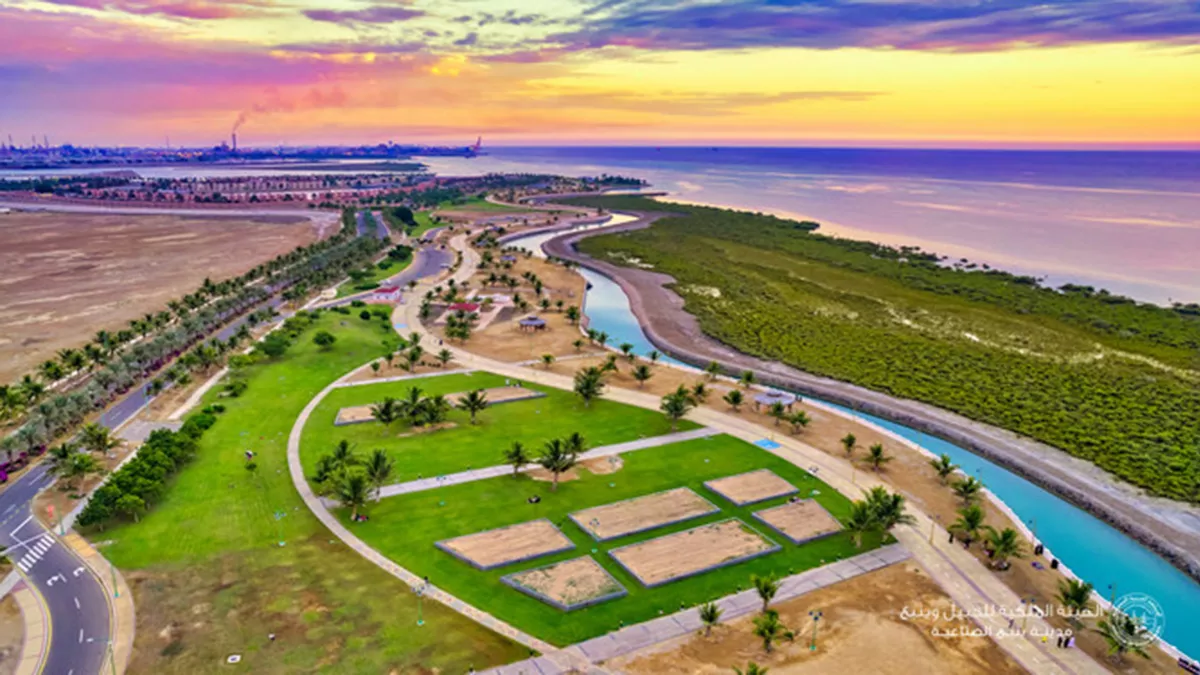Yanbu has become a benchmark by combining cutting-edge technology to run viable factories for a sustainable future
29 Jul 2023
News
Yanbu, Saudi Arabia's second largest settlement on the western Red Sea coast, has become a benchmark for developed industrial cities, where people, industries, and technology coexist in harmony with nature, by combining cutting-edge technology to run viable factories for a sustainable future.
"Yanbu Industrial City is a worldwide benchmark for highly developed industrial cities," said Abdulhadi bin Abdulrahman Al-Juhani, CEO of the Royal Commission in Yanbu (RCY). With a total area of 606 square kilometres, it is home to the largest industrial port on the Red Sea, the Kingdom's second largest industrial complex, and the world's fourth largest crude oil refinery.
"Yanbu Industrial City has adopted a sustainable vision that includes integrative regulations and standards as well as best environmental management practises that align with the pillars of sustainability and quality of life." Yanbu Industrial City has demonstrated substantial long-term success in key areas including as ecosystem conservation, energy and water efficiency, quality of life enhancement, and trash recycling," he noted.
According to Al-Juhani, the city provides sustainable environment and ecology with an 11-kilometer long beachfront and 37 municipal parks totaling about 5 million square metres of green space and over 100,000 trees. In addition, the city has around 15 million square metres of mangroves, conservation areas, coral reefs, and animal habitats.
Yanbu features cutting-edge road infrastructure, with more than 10 million square metres of roadways and 1,600,000 square metres of pedestrian walkways connecting the whole community and industrial districts, according to the RCY CEO. Vehicle travel times have been reduced as the road network has become more efficient. RCY also employs cutting-edge traffic management systems. SCATS, an intelligent transport system that handles the dynamic timing of signal phases at stops, is installed at over 100 road junctions.
RCY, according to Al-Juhani, has a comprehensive environmental programme that monitors the quality of a variety of water sources, including drinking water, sea water, groundwater, cooling water, irrigation water, and industrial effluent on a regular basis.
According to Al-Juhani, all sources are examined to RCY's environmental quality requirements, which are similar to the US Environmental Protection Agency's recommendations. Yanbu's wastewater is processed at a central plant. Water is also recycled to irrigate gardens and plants. More than 8 million cubic metres of treated sewage water are recovered each year to support the city's 3-million-kilometer-long irrigation network. Storm water is properly controlled inside the city via about 185 km of canals in industrial and residential areas. The city's perimeter has a 38-kilometer flood protection canal built to manage extreme weather occurrences.
According to Al-Juhani, RCY has implemented an air quality management programme in the city that comprises 11 quality-monitoring stations that guarantee industrial emissions are below allowed levels. RCY has upgraded more than 70% of its street lighting with energy-efficient LED bulbs to boost energy efficiency. The inconspicuous seaside city is quickly becoming a must-visit destination in the Kingdom, thanks to its expanding array of activities.
